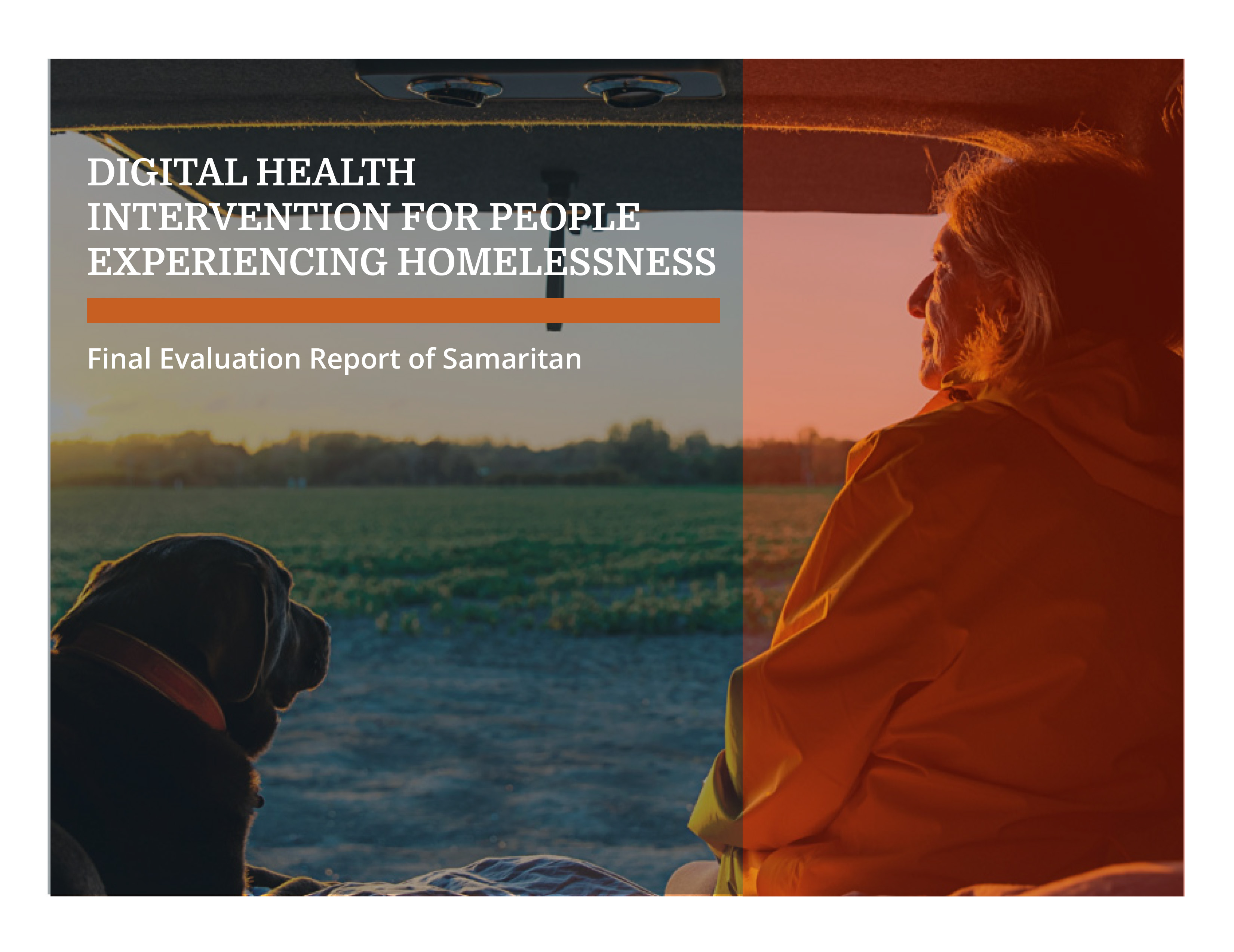Samaritan Evaluation Final Report
July 9, 2024
Samaritan pilot program shows promising results in addressing the financial and social needs of Members facing housing insecurity

The Center for Community Health and Evaluation has released the findings of an independent evaluation of Samaritan, a digital health intervention designed to assist individuals at risk for or experiencing homelessness. The Samaritan pilot was implemented in five community health centers in Los Angeles, and the work was supported by the California Health Care Foundation in collaboration with Health Care LA and California Hospital Medical Center.
Program Overview
Samaritan aims to help individuals, known as "Samaritan Members," set and achieve goals related to housing, income, health, and other essential needs. Care managers work with Members to break down these goals into actionable steps, identifying and addressing barriers along the way. Members receive financial incentives for completing steps and upfront support to overcome immediate challenges. This support is provided by local community partners, volunteers, and individuals with lived experience.
Evaluation Findings
CCHE and MedPOINT Management conducted the evaluation using a mixed-methods approach. The key findings include:
- Financial and social support: Members highly valued the financial incentives and community encouragement provided by Samaritan, which helped them stay motivated and achieve their goals.
- Improved self-efficacy and decreased social isolation: Participation in the program increased Members' confidence in meeting their social needs.
- Positive impact on health care utilization: Samaritan Members showed a significant decrease in emergency department (ED) visits and increased use of primary care clinic and specialist services.
- Health care cost savings: The evaluation revealed that the health care costs for Samaritan Members in the twelve months following enrollment were less than half of those for a comparison population driven by the decreased utilization of the ED and hospitalizations and the increase in prevention care.
- Member satisfaction: Members expressed high satisfaction with their experience in the program, highlighting the importance of the support received.
Looking Forward
The evaluation underscored the clear benefits of the Samaritan program for both Members and the health care system. Members experienced increased financial support, decreased social isolation, improved self-efficacy, and better health care connections. Participating hospitals saw reduced ED utilization rates and overall health care costs for Samaritan Members.
The success of the Samaritan pilot highlights the potential for digital health interventions to address complex social needs and improve health outcomes for vulnerable populations.
Read the final evaluation report to learn more.